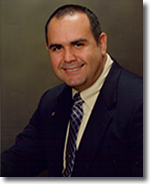
Recently, during a comprehensive medication review encounter, I questioned my patient on why he discontinued his diuretic. He hesitated a while and then said that the physician didn’t stop the medication, he did. I didn’t expect this answer. Upon further questioning, the patient confided that he had lost faith in the physician, and did not want to be taking unnecessary medication any longer. Realizing that my patient felt empowered in determining his medication treatment plan, I tested his knowledge.
He confided that he read a lot of drug information on the internet, and felt that the physician was not doing a good enough job controlling his high blood pressure. I asked him if he knew the hypertension treatment guidelines and he replied that he didn’t. I took the opportunity to explain to him what the guidelines meant and how his physician is using them to treat his condition – both non-pharmacologically and pharmacologically. Twenty minutes later, our little education session was over and he left with a renewed purpose and direction on how to better manage his condition. In addition, I told him to pick up a medication action plan to discuss with his physician on his next medical visit.
Information on the internet can be used to guide our decisions on many issues. When we begin to think that we can circumvent an expert’s training based on information found on the internet, we must stop ourselves from believing that we know more than the physician who has been trained for years in their specialty. This does not mean that we should not question our physicians and their treatment plans. While some physicians may feel uncomfortable discussing these topics, it is within your right to know what you should expect or do to treat your medical condition. If you don’t get the answers, or your physician doesn’t want to talk to you, seek alternative medical care.
Until next week, stay healthy.
Dion.

